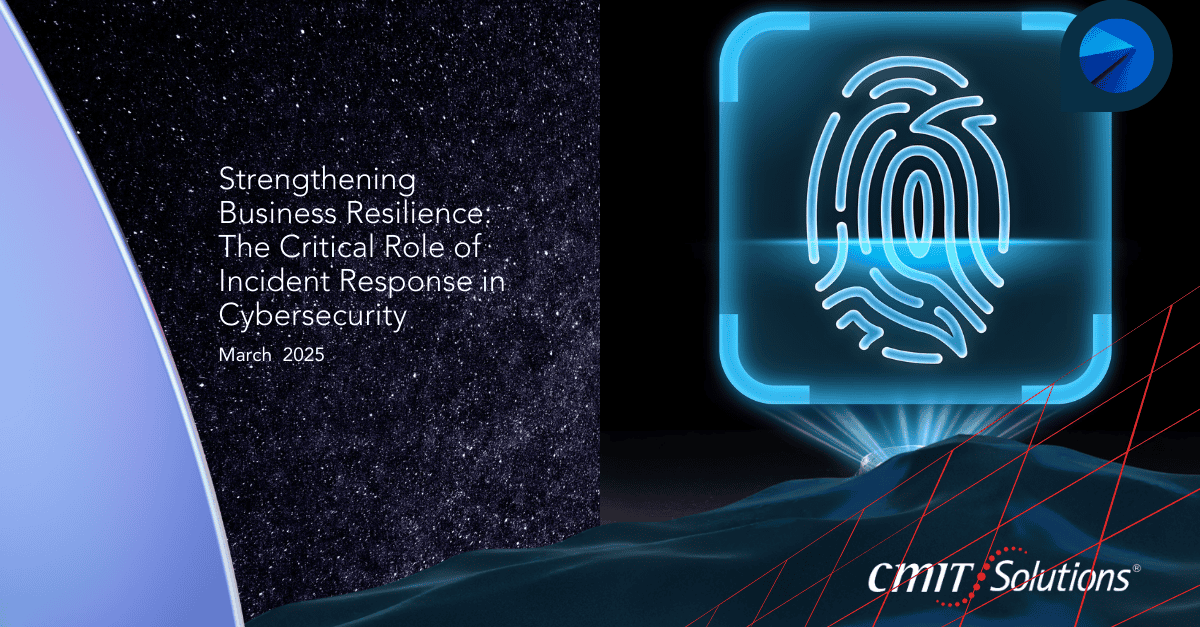Introduction
In today’s evolving digital landscape, businesses are constantly exposed to cyber threats. Incident response is no longer a luxury but a necessity for ensuring operational continuity and resilience. Cybersecurity incidents—from ransomware attacks to data breaches—can cripple businesses that lack a well-defined response strategy.
At CMIT Solutions of Charleston, we provide Managed IT Services that fortify businesses against cyber threats, ensuring they are prepared to respond effectively when incidents occur.
This article explores the importance of incident response and how businesses can implement a robust strategy to safeguard operations, mitigate risks, and ensure compliance with industry regulations.
What Is Incident Response?
Incident response refers to the structured approach organizations take to detect, contain, and recover from security incidents. This includes threats like phishing, ransomware, insider threats, and system breaches. A well-executed incident response plan minimizes damage, prevents financial losses, and ensures quick recovery.
For businesses in Charleston, securing a proactive cybersecurity framework through Charleston IT support is essential to staying ahead of threats.
The Five Phases of Incident Response
1. Preparation
A business’s ability to respond effectively to an incident begins with proactive preparation. This involves:
- Conducting cyber risk assessments.
- Implementing data protection protocols using cloud security solutions.
- Creating an incident response team with defined roles and responsibilities.
2. Detection & Identification
Timely identification of cybersecurity incidents can limit damage and data loss. Effective strategies include:
- Using SIEM solutions for real-time monitoring.
- Implementing SOC monitoring to detect anomalies in network traffic.
- Training employees on cybersecurity best practices to recognize phishing attempts.
3. Containment
Once a security incident is detected, immediate containment is crucial to prevent further damage. This involves:
- Isolating compromised systems.
- Implementing disaster recovery solutions to maintain business operations.
- Disabling compromised user accounts to prevent lateral movement.
4. Eradication & Recovery
After containing an incident, businesses must remove the threat and restore operations safely. Key actions include:
- Conducting forensic analysis to identify vulnerabilities.
- Enhancing data backup solutions through managed cybersecurity services.
- Applying security patches and updates to affected systems.
5. Post-Incident Review & Compliance
A critical step in strengthening cybersecurity is conducting post-incident reviews. This allows businesses to:
- Analyze security gaps and implement corrective measures.
- Improve compliance-driven cybersecurity to meet industry standards.
- Train employees to recognize future threats and reduce the risk of recurrence.
Key Incident Response Technologies Businesses Should Implement
- Security Information and Event Management (SIEM) – Enables real-time threat detection and response.
- Network Monitoring with SOC – Strengthens proactive cyber defense.
- Automated Incident Response Tools – Reduces manual intervention and speeds up remediation efforts.
- Cloud Data Protection & Encryption – Keeps sensitive data secure in hybrid cloud environments.
The Role of Incident Response in Business Continuity
Having a well-defined incident response strategy ensures that businesses can recover quickly with minimal disruption. For example:
- Data breaches require immediate containment to prevent financial and reputational damage.
- Ransomware attacks necessitate a strong backup and disaster recovery strategy to restore critical data.
- Phishing attacks should trigger an employee awareness campaign to reduce future risks.
For companies leveraging managed IT support in Charleston, proactive incident response planning helps reduce downtime and enhance operational resilience.
Why Choose CMIT Solutions of Charleston for Incident Response?
At CMIT Solutions of Charleston, we provide:
- 24/7 security monitoring and incident detection.
- Proactive cybersecurity solutions tailored to hybrid cloud environments.
- Regulatory compliance management, ensuring adherence to industry security standards.
- Automated threat response solutions to minimize downtime.
Through our comprehensive IT support solutions, businesses can strengthen their cybersecurity posture while ensuring continuous business operations.
Conclusion
Incident response is the backbone of business resilience in the face of evolving cyber threats. Implementing a proactive strategy with CMIT Solutions of Charleston ensures businesses can detect, respond to, and recover from security incidents efficiently.
With cloud security governance, disaster recovery solutions, and cutting-edge cybersecurity tools, our experts help businesses build a strong incident response framework that mitigates risks and ensures compliance.
For expert cybersecurity guidance and incident response support, contact CMIT Solutions of Charleston today.





